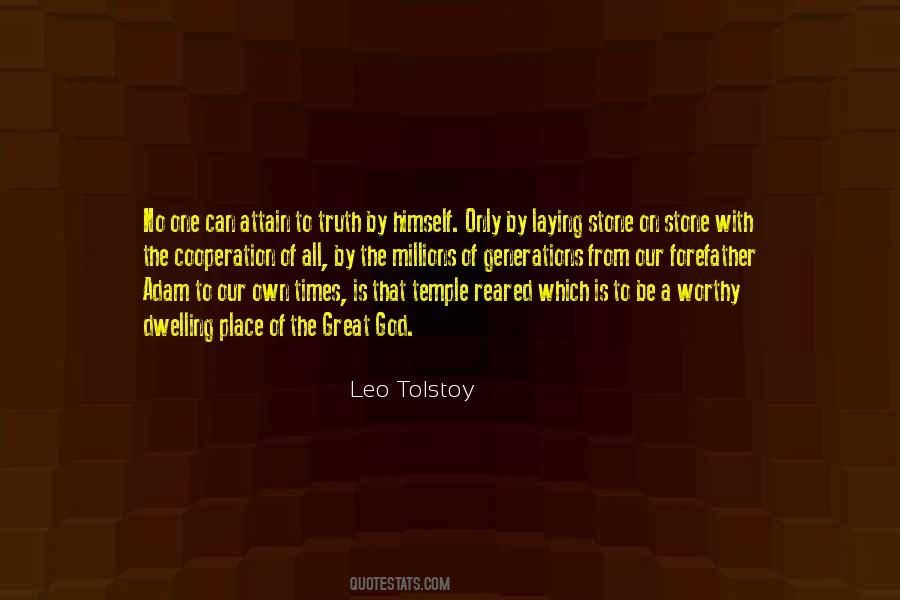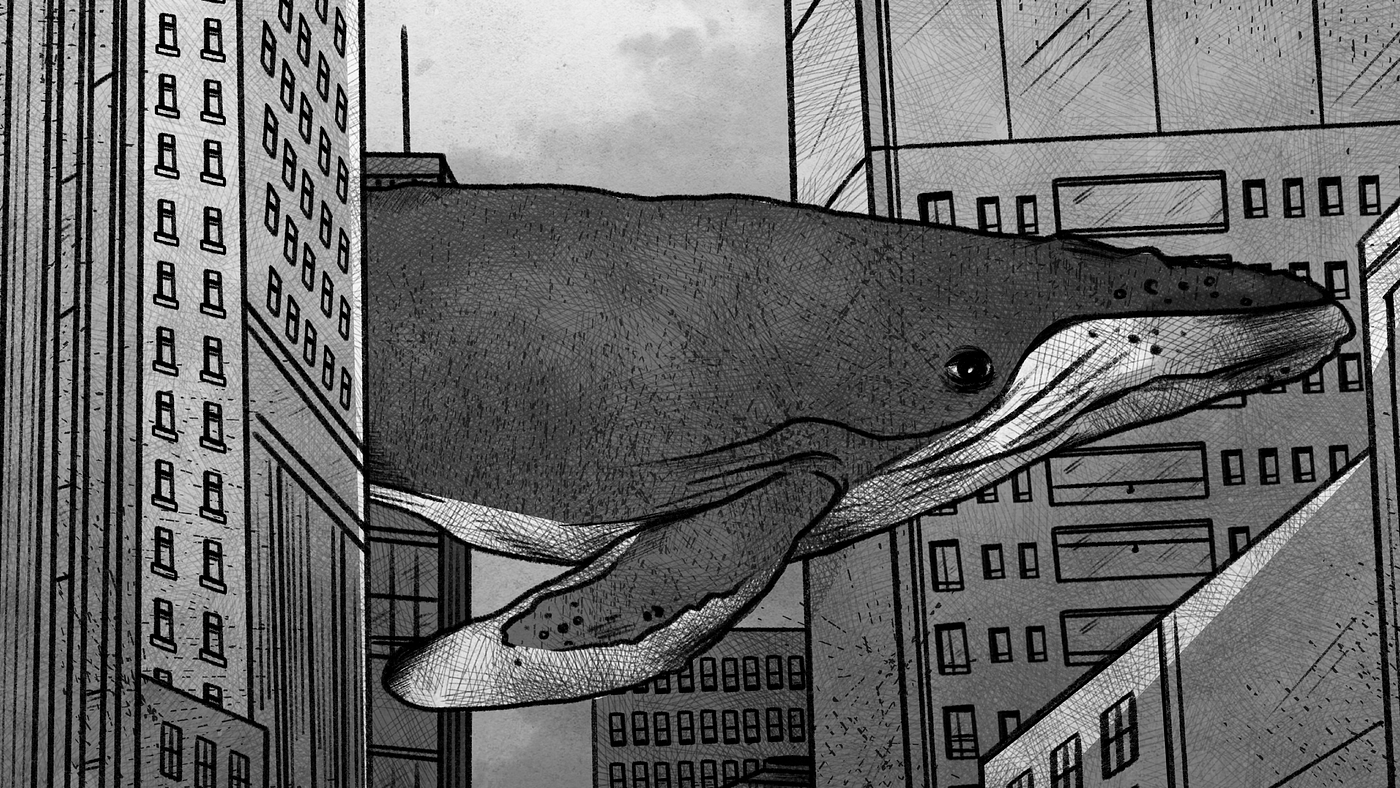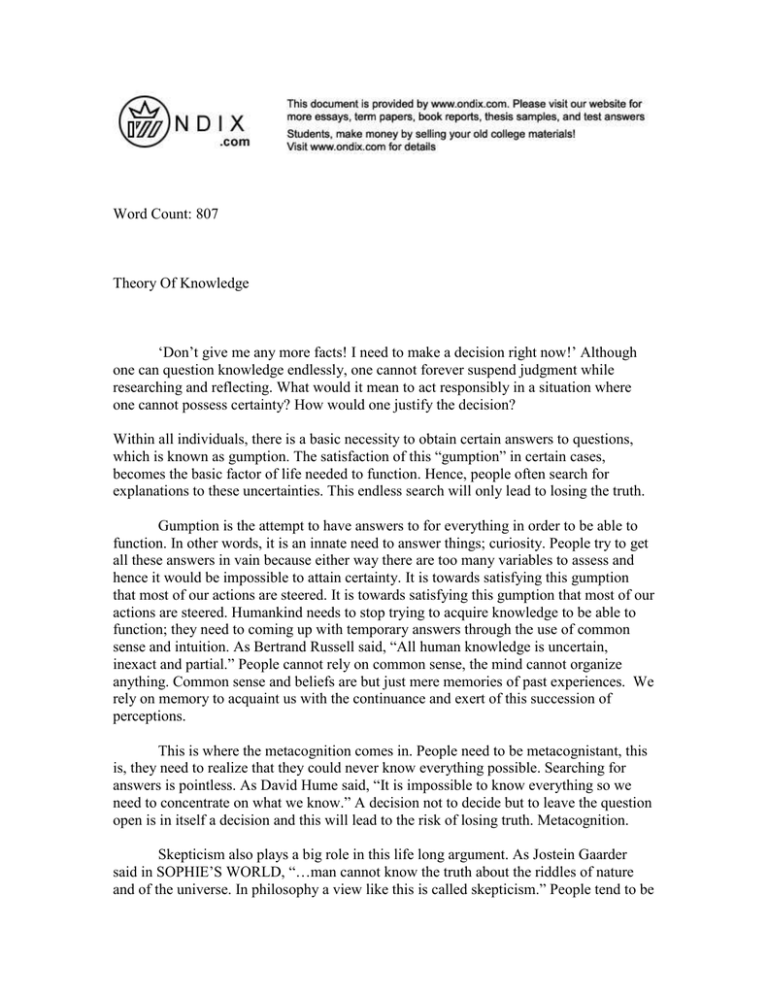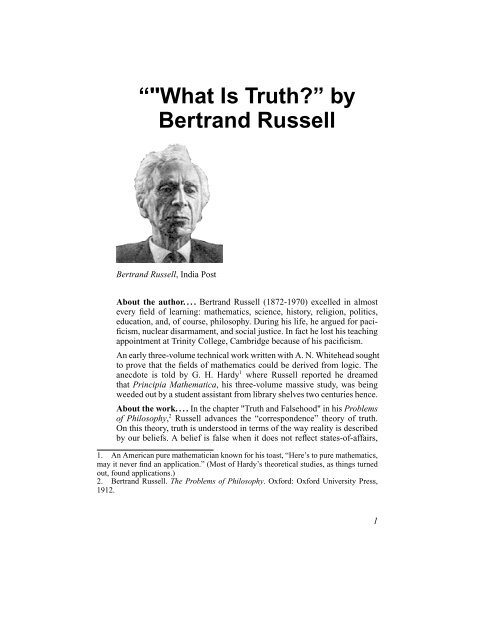For Russell Minds Do Not Create Truth or Falsehood
Truth and falsehood except in the case of beliefs about our own minds depend upon the relations of mental occurrences to outside things and thus take us beyond the analysis of mental occurrences as they are in. Thus although truth and falsity are properties of beliefs yet they are in a sense extrinsic properties for the condition of the truth of a belief is something not.
A belief is rendered true or false by relation to a fact which may lie outside the experience of the person entertaining the belief.

. What is Russells meaning when he says Minds do not create truth or falsehood. It will be seen that minds do not create truth or falsehood. In fact truth and falsehood are.
It will be seen that minds do not create truth or falsehood. Through this he comes to conclude minds do not create truths or falsehood. They create beliefs but when once the beliefs are created the mind cannot make them true or false except in the special case where they concern future things which are within the power of.
If we imagine a world of mere matter there would be no room for falsehood in such a world and although it would contain what may be called facts it would not contain any truths in the sense in which truths are thins of the same kind as falsehoods. What Is Truth by Bertrand Russell falsehood. They create beliefs Russell 67 and the only way our minds believe a belief to be true is if there is a corresponding complex not involving the mind but only its objects.
Minds do not create truth or falsehood. It will be seen that minds do not create truth or falsehood. Here Russell has established a structured basis for our reasoning a criterion distinguishing truth from falsehood.
Russell believes that it is possible to discover moral ideals with which to sustain ourselves in this ultimately meaningless existence. Russell argues that the correspondence theory meets the three requirements of any theory of truth. They create beliefs but when once the beliefs are created the mind cannot make them true or.
They create beliefs but when once the beliefs are created the mind cannot make them true or false except in the special case where they concern future things which are within the power of. What makes a belief true is a FACT and this fact. It will be seen that minds do not create truth or falsehood.
Russell lists three requisite features for a theory of truth. He stresses that this chapter is only concerned with what is meant by the question of whether a belief is true or false not with identifying which beliefs are true or false. They create beliefs but when once the beliefs are created the mind cannot make them true or false except in the special case where they concern future things which are within.
It will be seen that minds do not create truth or falsehood. They create beliefs but when once the beliefs are created the mind cannot make them true or false except in the special case where they concern future things which are within the power of the person believing. His next chapter will undertake the separate question as to which of our beliefs are true or.
They create beliefs but when once the beliefs are created the mind cannot make them true or false except in the special case where they concern future things which are within. It will be seen that minds do not create truth or falsehood. For Russell minds do not create truth or falsehood.
1 The theory must take its opposite falsehood into account. Truth consists of some form of correspondence between. 192-193 Later he adds It will be seen that minds do not CREATE truth or falsehood.
Here are two quotations from pp. They create beliefs but when once the beliefs are created the mind cannot make them true or false except in the special case where they concern future things which are within. Minds only create beliefs cannot make them true or false.
2 Since it is evident that if there were no beliefs there could be no truth or falsehood. They create beliefs but when once the beliefs are created the mind cannot make them true or false except in the special case where they concern future things which are within the power of. As part of his theory of truth and falsity Russell emphasizes that beliefs are true or false depending on what the objective facts are.
Only facts which only in exceptional cases involve mind of person who has the belief. Thus Russells criterion for truth is essentially a correspondence between belief and fact. Bertrand Russell explained it as follows.
It takes the form of a complexgrammatical form against which we can measure our beliefs. According to Russel a theory of truth must Allow for falsehood assume that truth and falsehood are properties of belief and assume that truth or falsehood depends on something external to beliefs.

Top 48 Not Worthy Of The Truth Quotes Famous Quotes Sayings About Not Worthy Of The Truth

Pdf Do We Have Voluntary Control Over Our Beliefs Michael Carino Academia Edu

Pdf Post Post Truth Are We There Yet

Pdf Truth Primitivism And Truth As Correspondence Some Developments In Russell S Theories Of Truth Anssi Korhonen Academia Edu

Russell S Sophisticated Attempt To Define Truth By Tiff Donna Philosophy Studios Medium

Word Count 807 Theory Of Knowledge

2headedsnake Lonequixote The Discovery Of Fire Rene Rene Magritte Magritte Paintings Magritte

Doc Comprehensive Review Ken Ramirez Academia Edu

Pdf Truth In The Post Truth Era Evaluating The Theories Of Truth With A Table Of Contingency

Philosophy Matters On Twitter Nietzsche Quotes Philosophical Quotes Philosophy Quotes
When Is The Truth Not True Quora

Pdf Information And Knowledge Combining Justification Truth And Belief

Quot What Is Truth By Bertrand Russell Philosophy Lander Edu

Truth Is Not Only Violated By Falsehood It May Be Equally Outraged By Silence Henri Frederic Amiel In 2022 Silence Quotes This Is Us Quotes Portrait Quotes

Comments
Post a Comment